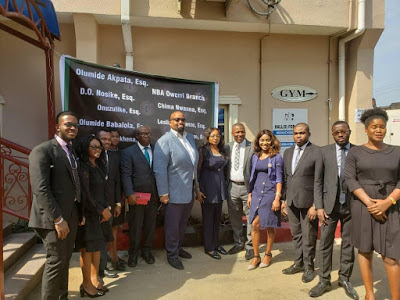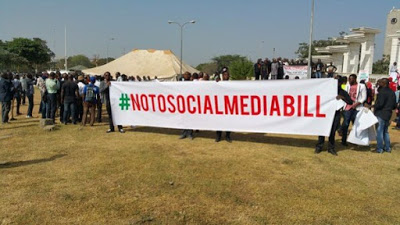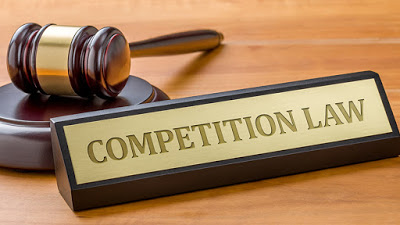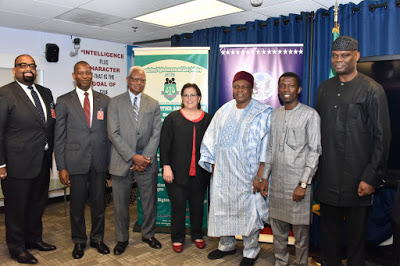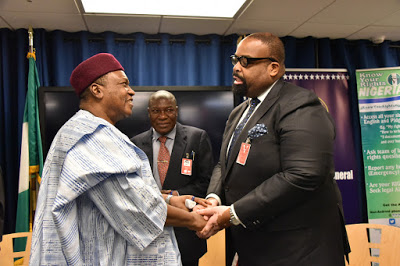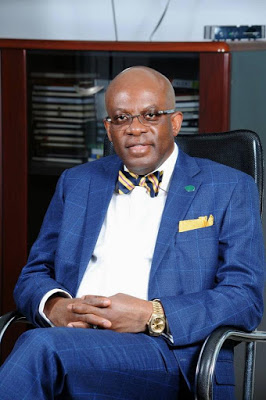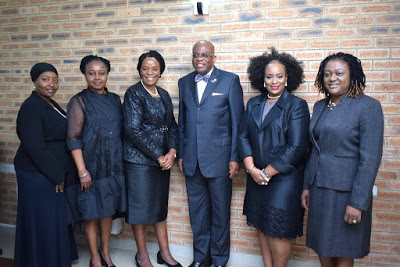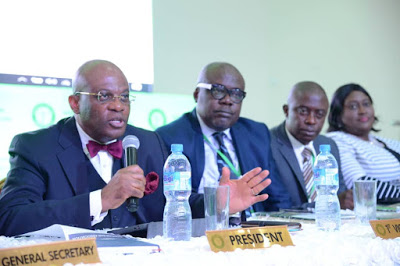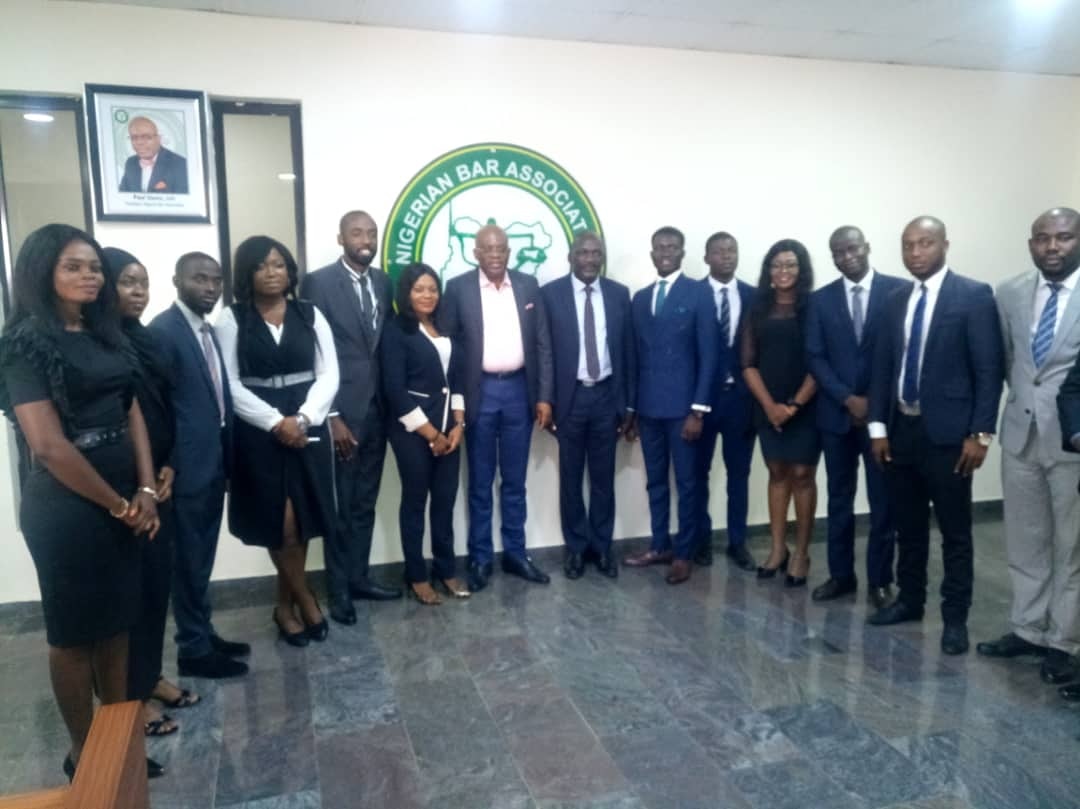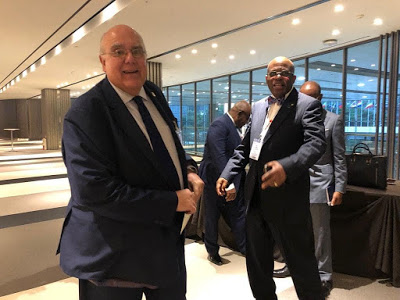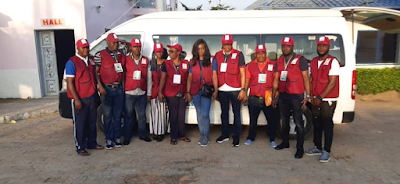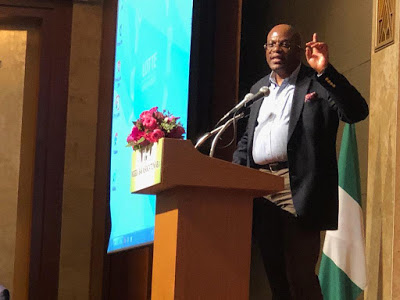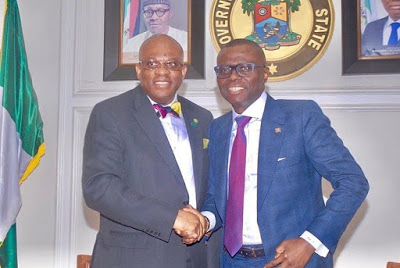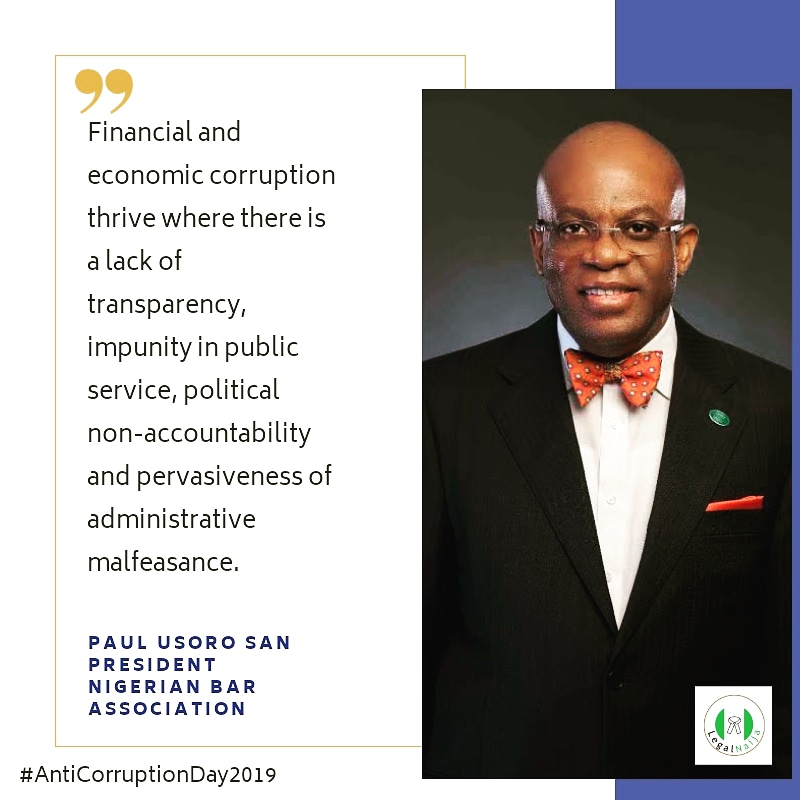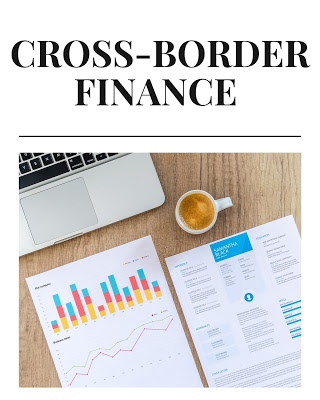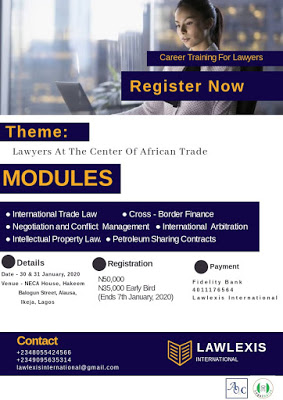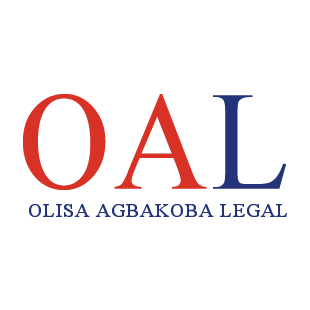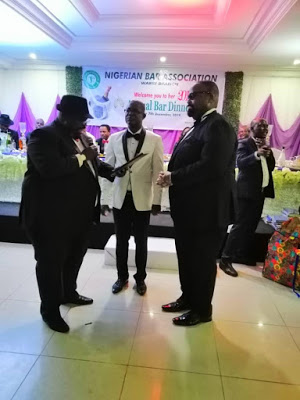I. INTRODUCTION
The increasing rise in piracy in the Gulf of Guinea has
become alarming. Until recently, the concern about piracy has been the Gulf of
Eden operated by Somalia pirates; however, piracy has witnessed a drastic shift
to the Gulf of Guinea. Armed robbery against ships and cargo theft have also risen
uncontrollably within Nigerian territorial and internal waters. These
activities pose a serious threat to national, regional and global security and
economy.
Earlier
this year, the Director General of the Nigerian Maritime Administration and
Safety Agency (NIMASA), Dr. Dakuku Peterside attended a major maritime security
conference at the International Maritime Organization (IMO) Headquarters in
London. The conference discussed the increasing high risk of piracy in the Gulf
of Guinea with emphasis on piracy off the coast of Nigeria. The Head of
Security for BIMCO, Jakob Larsen, noted that Nigeria holds the key to resolving
maritime offences within the coast of Nigeria and this requires Nigeria to work
with international navy. On the part of Nigeria, Dr Dakuku Peterside
acknowledged that there is a high security risk of piracy in the Gulf of Guinea
but stated that NIMASA and the Nigerian Navy are
doing their best to help curb the problem
As part of curbing the problem of piracy, armed robbery
against ships and other Maritime offences, the President assented to the piracy
bill, sponsored by NIMASA titled; The Suppression of Piracy and Other Maritime Offences Act (SUPMOA) 2019. The Act gives effect to the United Nations Convention on the
Law of the Sea (UNCLOS) 1982, the Convention for the Suppression of Unlawful
Acts against the Safety of Maritime Navigation (SUA) 1988 and its Protocols.
This article discusses the SUPMOA 2019, notes some of the pitfalls
and offers some recommendations.
II. PIRACY,
ARMED ROBBERY AND CARGO THEFT IN THE GULF OF GUINEA VIS-À-VIS NIGERIA’S
TERRITORIAL WATERS
According to the International Maritime Bureau (IMB)
2019 Q3 report on piracy and armed robbery against ships covering January 1 – September 30, 2019, the
Gulf of Guinea was reported to be the world’s most dangerous trade route and
piracy hotspot in the world. The report noted
that 119 incidents of piracy and armed robbery against ships occurred worldwide,
with 95 ships boarded, 10 ships fired upon, 10 attempted attacks, and 4 ships
hijacked. The Gulf of Guinea accounted for 43 of the actual attack and 10
attempted attacks, 86% of crew taken hostage and 82% of crew kidnappings
worldwide. The report further revealed that of the 9 ships fired upon
worldwide, 8 were off the coast of
Nigeria.
Undisputedly,
these statistics reflect that Nigeria is currently at the epicenter of piracy
attacks in the Gulf of Guinea. This position is reinforced by the IMB Q3 report
which shows that the Lagos seaport appears to
have the highest number of incidents in the world so far in 2019, with 11 of
the incidents reported occurring within Lagos port. Interestingly, the
IMB Q3 report reveals that there was not a single incident of piracy in Somalia
and in the Gulf of Eden from January 1 – September 30 2019. This clearly shows
that the tide of piracy has indeed shifted to the Gulf of Guinea in general and
Nigeria in particular.
Apart from
piracy and armed robbery against ships, one other prevalent attack against
ships within Nigerian waters is the theft of crude oil and other essential cargoes and properties. The IMB Q3 report revealed several incidents
of actual and attempted cargo theft within Nigeria waters. For instance; on
March 24, 2019, two armed robbers boarded an anchored tanker at Lagos secured
anchorage area and stole oil cargo using hose pipes. Prior to this, on January
7, 2019, two armed robbers boarded an anchored tanker during STS operations in
Lagos, the hoses were connected to the ullage ports of the forward cargo tanks
to steal cargo, but an alarm was raised and the robbers escaped but on the July
25, 2019, ten armed robbers boarded a berthed ship during cargo operations and
stole the ship’s stores from the paint locker. On August 14, 2019, two robbers
boarded a berthed Offshore Supply Vessel at Onne Port and stole the ship’s
properties from the pump room. Some of the key driving factors behind
armed robbery against ships and cargo theft within Nigeria waters include weak
law enforcement, corruption, poverty and an unregulated oil market. Due to the
high risk associated with Nigerian territorial waters, insurance providers now
require ships coming to Nigeria to obtain extra cover / security.
Unfortunately, this is an added significant primary cost to ship owners and
charterers which makes Nigerian ports expensive and unattractive.
III. THE SUPPRESSION OF PIRACY AND OTHER
MARITIME OFFICES ACT (SUPMOA) 2019
The Suppression of Piracy and Other
Maritime Offices Act (SUPMOA) 2019 was enacted at a time when the coast of
Nigeria is being described as the new haven for piracy in the world, the
“Somalia” of the present day by the international maritime community. The Act is timeous, innovative and far-reaching.
Purpose
of the Act
The SUPMOA 2019 seeks to prevent and suppress piracy, armed
robbery and other unlawful act against a ship, aircraft and other maritime
craft, howsoever propelled, including fixed or floating platform.
Application of the Act
The act applies to any
person on board a ship or aircraft navigating in, on or above the territorial
and internal waters of Nigeria or on above international waters; or fixed or
floating platform in, on or above the territorial and internal waters of
Nigeria or on or above international waters.
It also includes
circumstances where the offender or alleged offender is found outside Nigeria
but is in the territory of a State who is a party to other International
Maritime Conventions.
Piracy Defined
Section
3 of the SUPMOA 2019 provides the definition of piracy and practically adopted
the definition provided under Article 101 of United Nations Convention on the Law
of the Sea (UNCLOS) 1982. It provides that piracy consists of
any;
(a) Illegal
act of violence, act of detention, or any act of depredation, committed for
private ends by the crew or the passengers of a private ship or a private
aircraft, and directed:
(i) In International Waters against another ship or aircraft, or against
a person or property on board such ship or aircraft;
(ii) Against a ship, aircraft, persons or property in a place
outside the jurisdiction of any State;
(b) Act of voluntary
participation in the operation of a ship or of an aircraft with knowledge of
facts making it a pirate ship or aircraft; and
(c) Act of inciting or of
intentionally facilitating an act described in subparagraph (a) or (b)
Flowing
from the definition of piracy, it is evident that any acts of violence committed
against a ship within the territorial or internal waters of Nigeria will not be
considered piracy. It is pertinent to distinguish between piracy from armed
robbery against ships. Armed
robbery against ships is often misinterpreted and misconstrued as piracy, these
two criminal concepts are categorized differently. While the crime of piracy
takes place on the High seas (international waters) and must fulfill some
essential elements, the crime of armed robbery against ships on the other hand takes
place within the territorial and internal waters of a Coastal State i.e
Nigeria. The offence of piracy is provided under Section 3 of SUPMOA, while the
offence of armed robbery against ships is covered under section 4.
Section
4 provides that a maritime offence includes armed robbery at sea and any other
act, other than piracy which is committed by any person or group of persons
where that person or group of persons or their sponsors unlawfully within the
Nigerian Maritime Zone or jurisdiction commit the following acts or offences
such as: Hijacking of a ship, destruction of a ship, theft of cargoes on a
ship, demanding ransom, receiving proceeds from the offences of piracy,
permitting pollution of water from the ship, threat to life whether or not to
solicit for ransom, providing false claim of a piracy and other maritime
offences under the Act.
Prosecution
One aspect of the act that is commendable is the fact that
it empowered NIMASA to prosecute offences under SUPMOA albeit with the consent
of the Attorney General. Section 5 (1) provides that the Attorney General; any
law officer so designated by the Attorney General; or the Nigerian Maritime
Administration and Safety Agency (NIMASA) with the Attorney General’s consent
are empowered to prosecute offences under SUPMOA.
Jurisdiction
As with
other Maritime related offences, Section 5(2) of the Act gives exclusive
jurisdiction to the Federal High Court to hear and determine any matter under
the Act irrespective of other elements of crime that may appear to be
non-maritime related contained in the offence.
Punishment
Section 12 provides that any person who commits an
act of piracy, armed robbery at sea or any other unlawful act under SUPMOA,
whether or not the person was armed with a firearm or other weapon during the
commission of the offence shall be liable on conviction to life imprisonment
and payment of N50, 000,000.00 (Fifty Million Naira) and in addition to restitution to the owner.
IV. SUPMOA 2019 PITFALLS
v The Piracy and Other Maritime
Offences Fund
Section 19 of
the Act provides that a fund known as the Piracy and Other Maritime Offences
Fund (POMO Fund) shall be created by the Nigerian Maritime
and Safety Agency (NIMASA). The POMO fund is to be used for the implementation
of the Act and the Fund shall be credited from money approved by the Federal
Government for the implementation of the Act; gifts, financial contributions by
beneficiaries of the services of the maritime enforcement agencies; 35% of the
proceeds of sales of any property seized and anything forfeited under the Act
including instruments used in the commission of crimes and criminal activity
under the Act; the contribution from the maritime fund under NIMASA Act; and
contribution from the Cabotage Vessel Financing Fund (CVFF) under the Cabotage
Act 2003. Furthermore, the POMO fund is
to be managed by NIMASA.
It is hoped that
the POMO fund will not suffer the same fate as the undisbursed Cabotage Vessel
Financing Fund (CVFF) created under the Cabotage Act. Suffice to say that the
POMO fund is to be disbursed judiciously for the successful implementation of
the SUPMOA 2019.
Piracy
Definition
With
the full adaptation of the definition of piracy under Article 101 of UNCLOS, the
challenges associated with that definition were also adopted. For instance, section 4 of SUPMOA provides that
for piracy to be established, the act must be committed for private ends or for
personal gain. However, any acts that are politically motivated do not fall
within the definition of piracy. This principle is flawed because in Nigerian
political climate, political rivals could go as far as committing criminal act
of violence against a ship or crewmen, unfortunately, it will not amount to
piracy.
v Failure to define a Ship
Another pitfall observed, is the failure
of the Act to expressly define a ship or what constitute a ship. Similar lacuna
was also created in the Cabotage Act 2003. The failure of the Cabotage Act to
expressly describe an oil rig as a ship has been used by foreign shipowners as
an avenue for contesting the statutory powers of NIMASA to levy its statutory
fees on oil rigs employed by these shipowners in their drilling operations
until the Court finally interpreted the act to include oil rigs that are
propelled. The issue of what constitute
a ship could have easily been averted if the definition given by the Act was
all encompassing and sufficient to cover all ships like the Jones Act 1929 did.
It is hoped that this lacuna will not affect the effective prosecution of
offences under the Act.
v Receiving proceeds from the crime
under the Act
Section
4(g) of the SUPMOA 2019 provides that it is an offense to receive proceeds from
the crime of piracy, armed robbery against ships and other maritime offences at
sea. The Act expressly lumped individuals receiving proceeds from the crimes
under the Act and Corporate entities such as banks and other financial
institution. There is need to revisit
this section because proceeds of crimes including maritime crimes usually find
its way to banks and other financial institutions without the banks knowing the
actual source of the funds. With the
enactment of this Act, banks and other financial institutions are advised to
upgrade their KYC tools and procedure.
v Punishment
The Act under section 12 (1) provides that any person who commits an act of
piracy, armed robbery at sea or any other unlawful act under the Act, whether
or not the person was armed with a firearm or other weapon during the
commission of the offence shall be liable on conviction to life imprisonment
and a fine of N50, 000,000.00 (Fifty Million Naira) and restitution. However,
section 12 (2) also provide that if during the commission of armed robbery at
sea, the offender was in possession of or had under his control any firearm,
explosive or BRCN weapon, the offender will be liable on conviction to at least
15 years imprisonment. There is need to
revisit the punishment section because of the disparity and ambiguity.
V. RECOMMENDATION
The
aim of SUPMOA 2019 is to prevent and suppress
piracy, armed robbery and other unlawful act against ships, aircraft and other
maritime craft. But these maybe difficult to achieve if the necessary
tools are not put in place for the effective implementation of the Act. The
following tools are recommended;
1.
Establishment
of a National Coast Guard
NIMASA has been empowered under the Act to enforce the
SUPMOA 2019. However, NIMASA being a civil entity is not fully equipped to
effectively carry out the enforcement of SUPMOA 2019. For this revolutionary
Act to be effective and cure the menace of sea crimes, it therefore calls for
establishment of a national Coast Guard empowered by law according to
international maritime best practices. The role of the national Coast Guard is
to safeguard the territorial and internal waters of a Coastal State while the
Navy patrols the High Seas and protect the Costal State against external
aggression. The time to establish a national Coast guard is now.
2.
Funding
The Nigerian navy needs to be fully supported and
funded and there should be a collaboration between the Nigerian navy and
international navy in safeguarding the high seas around the coast of Nigeria
and the Gulf of Guinea.
3.
Creating
Maritime Division Court
Maritime matters are of specialized
knowledge as such, there is an urgent need to create a specialized divisional
court to handle maritime matters presided over by trained maritime judges for
the speedy dispensation of offenses under the Act. With NIMASA’s powers to prosecute
albeit with the consent of the Attorney General, offences under the Act will be
prosecuted swiftly, hence the need to have a maritime court readily available
to dispense justice.
VI. CONCLUSION
The
Suppression of Piracy and Other Maritime Offences Acts (SUPMOA) 2019 is a
much-needed intervention in the Nigerian maritime sector and for the security
of Nigerian territorial and internal waters. With the Act criminalizing the
offences of piracy, armed robbery against ships, cargo theft and other related
maritime offences, Nigeria will be taken seriously in the international
maritime community. Nigeria has taking the necessary steps not only to improve
security within her territorial waters, this Act will also help to curb the
menace at seas internationally.
WRITTEN
BY;
CAROLINE
TOKULAH-OSHOMA (MRS)
Associate – Olisa
Agbakoba Legal (OAL)
Email:
ctokulah@hotmail.com
